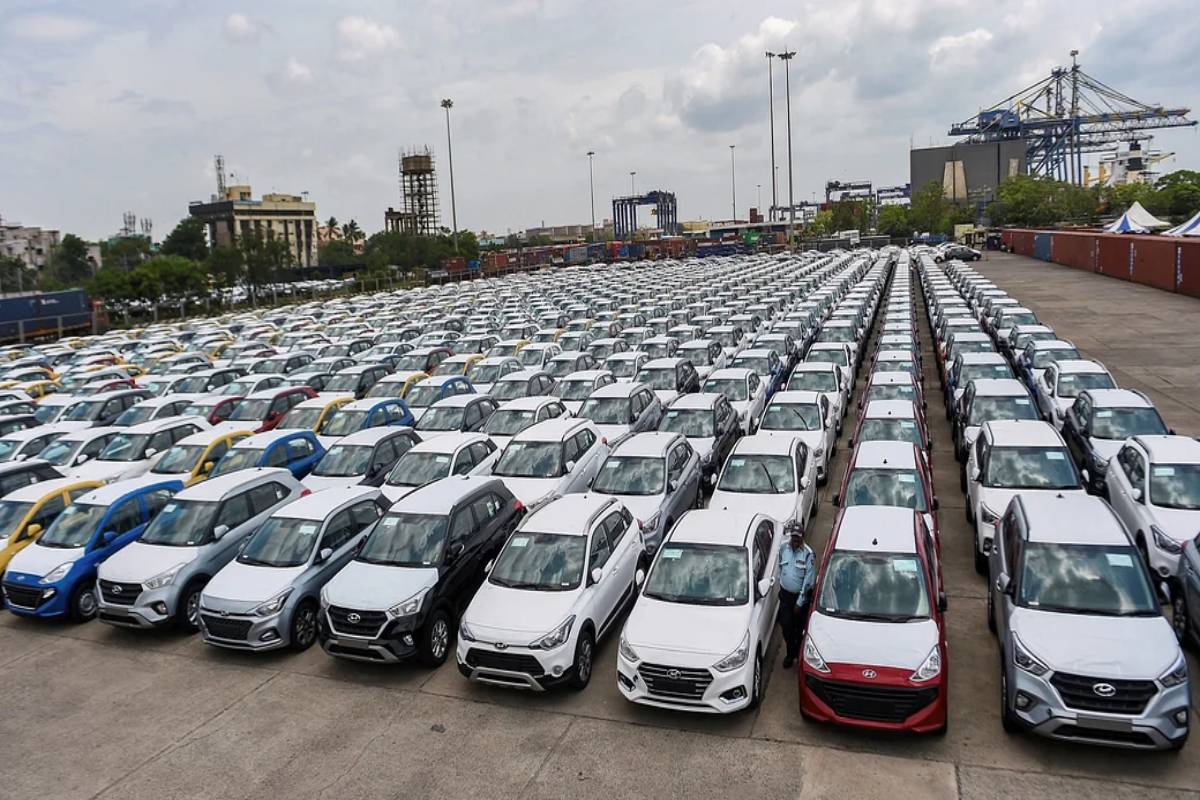FM hands over keys to homebuyers under SWAMIH Fund in Mumbai
Finance Minister Nirmala Sitharaman on Monday handed over keys to homebuyers from select projects in Mumbai Metropolitan Region (MMR).

File Photo
Over two years after the Centre announced its Vehicles Scrappage Policy 2021 (VSP) with fanfare, a lot of ground needs to be covered in most states to implement it fully for the benefit of environment, employment and, revenue, say officials and industry players.
The VSP is the first transformative, transparent and eco-friendly attempt by Union Minister for Road Transport and Highways Nitin Gadkari to organise the Indian scrappage industry, with loads of incentives-disincentives, and pave the way for ‘fitter and younger’ automobiles zooming on roads, thus enhancing safety and curbing pollution.
Advertisement
Union Finance Minister Nirmala Sitharaman chipped in by earmarking Rs 2,000 crore as Special Assistance for states to scrap (government) vehicles older than 15 years, plus road tax discounts/other concessions to private car owners opting to buy new automobiles in lieu of junking their vehicles.
Advertisement
The Material Recycling Association of India (MRAI), Mumbai, which has been regularly raising the issue with the Centre, said that “scrapping of current End of Life Vehicles (ELVs) burden in India can lead to a whopping 15-20 percent reduction in emissions due to vehicular pollution”.
“If implemented on priority, it can bring over 10 million (one crore) old vehicles for scrapping across the country right away, which will be a boon to various sectors,” said MRAI President Sanjay Mehta who is also Director of the MTC Group.
Of the 28 states and 8 Union Territories, Assam, Bihar, Jharkhand, Karnataka, Mizoram, Madhya Pradesh, Odisha, Punjab, Rajasthan, and Uttar Pradesh have announced incentives in road tax or motor vehicles Tax, and half a dozen states have notified one-time waiver of pending liabilities on vehicles older than 15 years which are scrapped at Registered Vehicle Scrapping Facility (RVSF).
As per official data, RVSFs are operational in: Assam (2), Andhra Pradesh (2), Chandigarh (1), Gujarat (4, plus approved 1), Haryana (5), Madhya Pradesh (2, plus approve 3), Maharashtra (1), Odisha (1), Punjab (1), Uttarakhand (1), and Uttar Pradesh (9, plus approved 20).
Maharashtra is among states that permit a one-time waiver of road tax, and after a nudge from Gadkari, may open a RVSF in each district, starting with a proposal for Circular Economy Parks in Aurangabad, Raigad, Ratnagiri, and Nagpur with all facilities under one roof.
Despite demands from prospective investors states like Kerala, Tamil Nadu, Karnataka, Telangana, West Bengal, Chhattisgarh, Jharkhand, Rajasthan and others have yet to take concrete steps for setting up RVSFs, industry sources said.
“We are ready to make the necessary investments, we have all the other requirements and expertise in place, barring the state government’s guidelines,” confided an enthusiastic industrialist-investor from Kerala who plans to set up RVSFs in multiple states including Maharashtra, Karnataka, and Telangana.
A businessman from Haryana’s Kaithal said his team of investors continuously pursued the matter with the state government “and recently positive movements are seen”, but urged the need to prioritise things “or the state risks lagging behind Punjab or Rajasthan”.
A central official said that the initial investments under VSP are likely to be over Rs 10,000 crore with potential for creating over 35,000 jobs, and the cascading effect on other allied industries would be even higher, besides catering to other businesses.
He said that when more automobile scrap-yards are set up across India, there will be huge scope for recovering recyclable parts, raw material for steel factories, and the rubber sector, while automobile manufacturers can reduce production costs.
For the government, its revenues would increase by an estimated Rs 35,000 crore from enhanced sales of small, medium and heavy commercial vehicles that would replace the junked vehicles.
Bhagyalaxmi Rolling Mills Pvt. Ltd, Jalna (Maharashtra), Manager Vidyadhar Muley said in June, they started an RVSF yard on 2 acres of land, and hope to scrap over 50,000 condemned vehicles gradually, annually.
“Such a project needs over Rs 10-15 crore for various specialised equipment and can employ around 50-100 people. Metal component of a scrapped vehicle is around 70 per cent which we use in our own steel factory, and the rest is given out to others,” Muley told IANS.
The MRAI has also urged Gadkari, the NITI Aayog and all state governments to quickly release policies on RVSF, Automated Testing Stations, declaring all the incentives/tax concessions, and consider measures to integrate the traditional vehicle scrap-yards and RVSF to benefit all stakeholders.
Interestingly, the courts have given a thumbs up for VSP, and the Bombay High Court recently rapped on the need to remove rotting jalopies along roads, highways, police stations, and other public places, unless required for legal purposes.
Advertisement